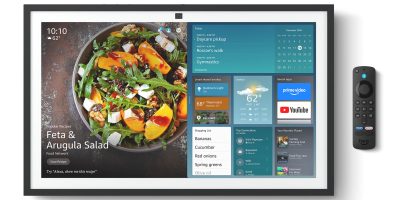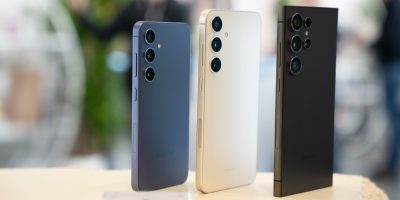
A huge agreement between the FCC and the United States’ major carriers has gone into effect starting today that requires carriers to provide unlocking services and mechanisms for any phones that meet their reasonable eligibility requirements. The quick and easy version of what’s going on can be found in the FCC’s handy FAQ document here.
The skinny is that carriers are now legally required to unlock all phones that don’t exist under an active postpaid financing period — such as those which have been bought without a contract or that have been active for the full life of a contract — at the request of the user. Much of these policies have actually been implemented for quite some time, but now is the “point of no return,” so to speak: this thing is set in stone.
Each carrier has to list their unlocking policy and give you details on what counts as an eligible device. The common theme seems to be that the phone has to be one of their own (so don’t expect AT&T to help you unlock your Verizon device), though there are a few differences from carrier to carrier.
Verizon, surprisingly enough, seems to be the least stringent on their policies. They note that all 4G LTE devices — whether they were bought prepaid or through Verizon Edge or contract-based commitments — and a majority of their 3G devices do not ship in a locked state, and for ones that do you can request an unlock or use a publicized unlock code at your own convenience.
AT&T requires your phone’s financing/commitment to be paid in full, for your account to be active for 60 days and within good standing, and for it not to be reported as lost or stolen. The device also can’t be active on an account other than your own.
Sprint’s requirements are a bit similar to AT&T’s in areas of fulfilling financing and contract commitments and refusing to unlock devices reported as lost, stolen or flagged for other suspicious activity, though they don’t require you to have been active for a certain amount of time. As an added bonus, most phones launched after February 2015 will use domestic SIM unlocking to automatically unlock your device when Sprint’s system pegs it as eligible (otherwise you just give them a quick ring and ask).
Funnily enough, T-Mobile’s requirements actually seem to be the most complicated and stringent, though it’s still relatively reasonable. The quick explanation is that it has to be a T-Mobile phone, it must not be reported as lost or stolen, the account must be in good standing, the account must have been active for 40 days, you will have to have paid for the device in full (or complete a contract commitment for those still on legacy plans) and you must not have more than 2 unlock requests for the same line in a calendar year. Phew, that was a mouthful.
You can read more about each carrier’s specific requirements for other types of situations (such as international travel, military exceptions and more information about prepaid unlocking rules) at the links above. Take it all in, and enjoy the fact that we’ve just taken one huge step toward true wireless freedom in the United States.












HECK YA!
all carriers should make it simple to uninstall there apps in the user does not desire them, thats all i care about
For those that don’t care to root, yes this needs to be a basic option for consumers.
Thumbs up
Carrier bloat shouldn’t even be installed on phones, users should have the OPTION to download them if they choose to.
And it’s funny how they think just because they add it customers are going to subcribe to they stuff , why when there’s better option out there
This! Carriers should just put their bloatware on the Play Store and let people download or not download it as they please. That would make both firmware updates (which wouldn’t be delayed while bloatware is tested) and bloatware app updates (which could be updated at any time through the Play Store) much easier.
The problem usually isn’t getting the phone unlocked, its getting the other carriers to activate a device they have not released/supported.
Its an easy process for them to add an imei, but I usually just buy my first phone through the carrier and just swap Sims as I get new phones. BUT, I also don’t expect any insurance with this method
How is that a problem? I’ve literally just walked right up in their and got it activated. LoL!!
Once it’s unlocked all you need is the SIM card.
Pop in your new carriers SIM card and activate, it shouldn’t be complicated. Worst case, get the SIM card activated in a phone (or tablet as the case may be) that they support, then move it to your unlocked phone/tablet.
Dwight seems pretty happy.
Bears beets battlestar galactica!
so…will this help achieve root for the z3v?
no. it will allow you to take the phone to another carrier.
….wife won’t let me :( granted she’s an employee
*cracks whip*
So I can unlock my moto g Verizon prepaid now? Sweet!!!!
only if it had a sim card…which it doesn’t. I guess you can take it to straight talk, they have cdma service
Well I’m looking to unlock the bootloader so I can root it is this possible?
Check this site… Xda-developers.com… If anyone knows how to… It will be these guys
Carrier unlocking and bootloader unlocking are two different things… this article is about carrier unlocking.
But unless the phone is designed to work with both, aren’t Verizon and Sprint phones unofficially locked anyway because of the specific CMDA bands their phones work on?
So if you buy whatever Droid branded flashship Verizon is selling, even if they “unlock” it, you can’t take it to another carrier if it’s only made to work with Verizon’s CDMA signal.
Many of Verizon’s phones are “world” or “international” versions. Their Sim capabilities are similar to at&t
Same with most of Sprint’s LTE phones.So once they’re unlocked you could go to T-Mobile or AT&T. I’m not sure exactly what bands are officially support, though.
I used my VZW Galaxy S3 and my wife’s VZW IP5 in Australia on 2 different carriers. Worked just fine. You just have to know what bands your phone has and pick the correct sim. Of course, that is the case with almost any carrier.
“eligibility requirements.” – and therein is the rub. Easy to make a definition whereby very little meets their “eligibility requirements.”.
I’d have loved to pick up a PadFone X for $200 now that they’ve fixed its self-nuking LTE antenna, but I burned my bridges at AT&T and it’d be locked to their network.
Why would it be illegal in the first place? Where I live the provider is obligated to unlock your phone add the end off the contract if the costumer asks it. Even if the would refuse it you would just walk in a local phone store (that is not owned by a carrier) and pay a few bucks to get it unlocked.
Okay. So providers would find “reasons” to not unlock a device. I had an AT&T phone that I bought in full and couldn’t get it unlocked. I didn’t have it under contract nor did I have an AT&T contract. I had won the device.
Why do I have to pay to get it unlocked? Who cares if it’s just a few bucks? Some places can’t even unlock devices and require the carrier. Or it’s expensive because of the process to unlock the device.
Have you ever unlocked or flashed a device before? Not the easiest thing for all devices.
Unlocking the bootloader to flash ROMs isn’t the same thing as carrier unlocking. This rules pertains to carrier unlocking. Unlocking your boatloader has always been legal in the US, but the carrier and manufacturer don’t have to provide the means to do so.
It was illegal in the US under the DMCA law to unlock a phone yourself without the carrier’s permission. There was an excemption to DMCA in affect that allowed unlocking for 3 years, but that ended a couple years ago and (inexplicably) wasn’t renewed. With these new rules, if you meet the requirements and your carrier still can’t or won’t unlock your phone, you’re allowed to do so on your own. That all being said, I don’t think anyone has ever been prosecuted for unlocking a phone, other than people unlocking massive numbers of stolen devices.
Is this effective immediately ?
It’s in the very first sentence of the story. Most carriers have been doing this for awhile anyways.
Power to the people!!!
How can Tmo limit your unlocks per year? Isn’t that against what’s being agreed upon?
While I agree it’s against the spirit of the agreement, I can’t imagine many people unlocking more than 2 phones per line in a year. How many locked phones would you really buy (and fully pay off) in a year on the same line? If you’re really going through more than 2 phones per year, you should probably be buying unlocked phones anyways.
So much for Un-Carrier
I’m not postpaid. I’m prepaid att and bought a phone on Craigslist. Can I just call them up and get them to unlock?
Follow the ATT link, it says they’ll unlock after 6 months of prepaid service.
Can carriers charge to unlock? If so, is there a maximum they are permitted to charge?
Directly from the linked FCC FAQ:
Q: Will I be charged fees to unlock my device?
Participating providers may not charge customers and former customers additional fees to unlock a device if it is eligible to be unlocked. Providers may charge a reasonable fee to unlock eligible devices for non-customers/non-former-customers.
We need that here in Canada. We have providers charging as much as $50 to unlock a phone.
That’s outrageous… sorry to here that. All the more reason to stick to buying unlocked phones.
The real Catch to this, though, is that the carriers won’t unlock the phones until they’re paid off. For most people, that means two years. How many people who frequent sites like this are going to keep their phone longer than two years? Not many.
How is it a catch? It doesn’t really matter how long they keep them, if they’re not paid off they technically don’t own them per the agreement, why should a carrier unlock it so you can pay some other carrier with the phone they pretty much financed you?
I never said carriers should unlock phones that aren’t paid off. But, as long as you’re still paying a monthly bill, why should the carrier care if you’re using another carrier’s network. They’re still making their money, and have more free network capacity.
But what I said is that this will mean nothing to most people, who replace their phone every two years, and will therefore always be using a locked phone.
As long as your paying the bill then sure, but the only problem is they have no way to guarantee that you will continue to once the phone is unlocked.
But, you could then either unlock said phone and then jump to another service, OR, unlock your phone prior to getting another phone (this ensuring that it can be used sans sim card, etc).
Wjat about pre-paid? Sprint MVNOs are making you keep a full year of service with an active account to unlock. It doesn’t change anything when you refuse to spend a dime with Sprint again.
I bought a T-Mobile phone that I plan to use on AT&T. My service is with AT&T so I don’t meet T-Mobile’s requirements. I don’t see how this helps me.
wouldn’t this only apply to sprint and Verizon since they are the ones that run on CDMA and not GSM? even when say a sprint phone is unlocked would it even have the necessary radios to run on at&t?